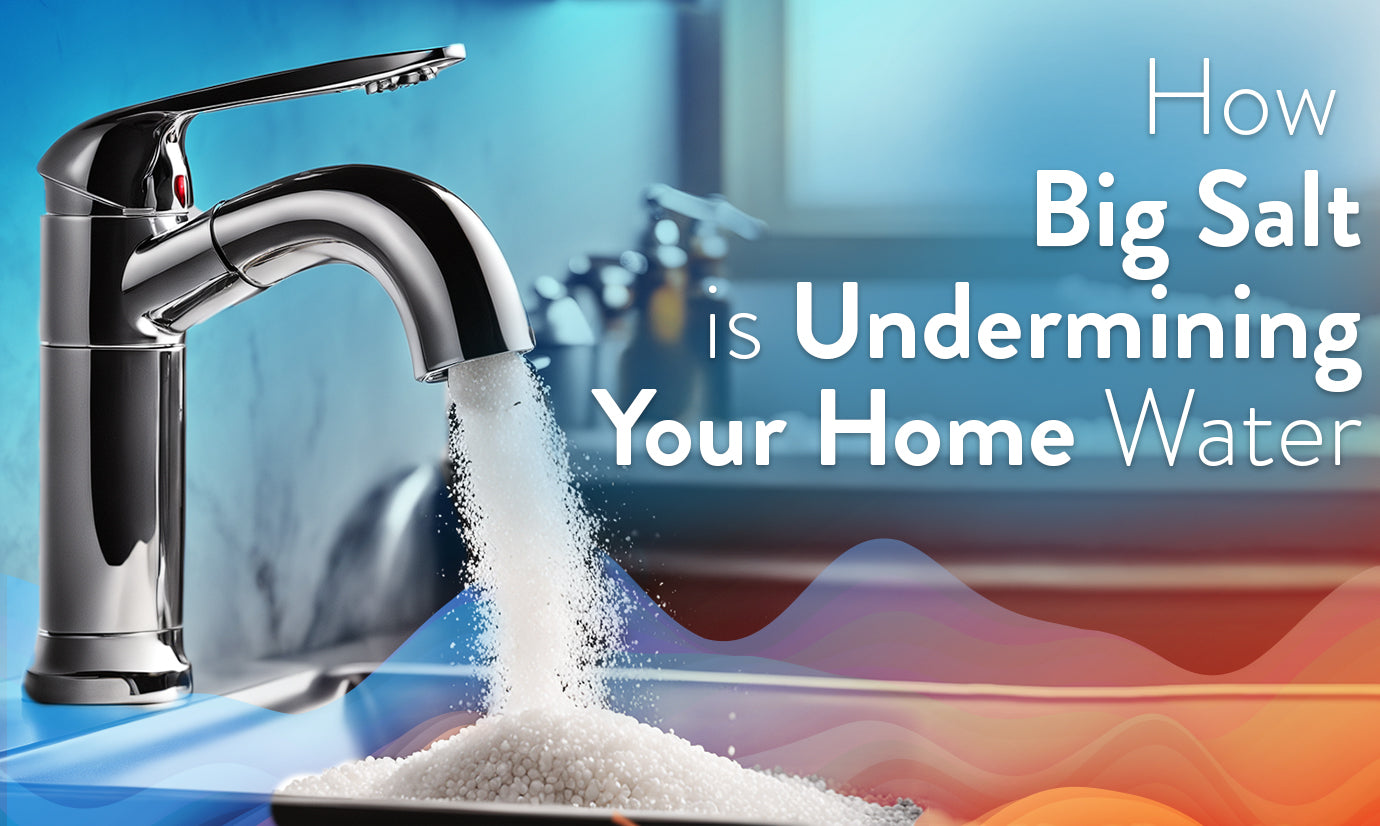Soft water should be simple, but regulatory capture within the water softening industry — which is dominated by salt-based ion-exchange softener manufacturers — might catch you off-guard. To understand some of the qualities you should really be looking for in a water softener, we must take a peek behind the scenes of how water hardness is defined.
Defining Water Hardness
The Water Quality Association (WQA) defines hard water as follows:
"Hard water is a common quality of water which contains dissolved compounds of calcium and magnesium and, sometimes, other divalent and trivalent metallic elements. The term hardness was originally applied to waters that were hard to wash in, referring to the soap wasting properties of hard water. Hardness prevents soap from lathering by causing the development of an insoluble curdy precipitate in the water; hardness typically causes the buildup of hardness scale (such as seen in cooking pans). Dissolved calcium and magnesium salts are primarily responsible for most scaling in pipes and water heaters and cause numerous problems in laundry, kitchen, and bath. Hardness is usually expressed in grains per gallon (or ppm) as calcium carbonate equivalent.”
“Hard” water, per the WQA, is water containing more than 7.0 grains per gallon of calcium carbonate equivalent, with one grain equalling 0.0648 grams. To visualize what this means, imagine 7 grains of rice ground into fine powder and stirred into a gallon of water. If that rice were calcium carbonate or a similar mineral, you’d have a pretty hard gallon of water.
Simple enough, right? Well, not exactly. While this scale takes calcium carbonate (“bad mineral”) equivalent concentrations into account, it gives no weight to how those minerals behave in your water.
The Problem with the Current Water Hardness Scale
While there’s nothing wrong with analyzing your water’s mineral levels, this is only the first step in determining its true hardness or softness. Water’s qualitative behavior — such as ease of soap lather, skin-irritating properties, or presence of unpleasant residues — is left completely out of WQA’s equation, giving consumers a very limited picture of how mineral concentrations actually affect them. We believe this is because the incredibly powerful Big Salt industry has lobbied institutions like the WQA to define water hardness in a way that only salt-softening methods will pass.
No convenient test currently exists for treatments that alter the behavior of “hard-water” minerals without removal of the minerals, so we can't currently objectively measure and prove successful treatment of problematic water. Long story short: the only “recognized” test for measuring hardness of water doesn’t test for the things actually matter about the water itself—only whether it has gone through a salt-softeners. But there are many other ways to soften water besides using salt.
Why This Works to the Salt Industry’s Advantage
According to ResearchAndMarkets.com, salt is a large and growing industrial sector, expected to grow in value from $13.67 billion (2022) to $17.43 billion in 2028. A significant percentage of this growth will be driven by demand for salt-based water softeners, especially in the economically expanding Asia Pacific region, where soft water is critical to huge industrial operations such as textile manufacturing and leather tanning. The global water softener market is expected to cross $5.7 billion by 2027.
Domestically, however, the salt-based water softening sector is threatened by encroaching regulation. Since salt-based softeners discharge salt in the ion-exchange process, surrounding areas can become contaminated by waste salt. Many municipal governments have taken notice, with several California municipalities already banning ion-exchange softeners, and others, like Marshall, Minnesota, preparing to follow suit.
It makes sense, then, that an entrenched market sector threatened by regulation would be happy to see the hardness narrative continue to play out in their favor. Defining water hardness strictly as the absolute concentration of “hard” minerals per gallon of water does exactly this, since the ion-exchange mechanism of salt-based softeners eliminates the minerals responsible for current hardness readings, albeit at the expense of the surrounding environment, not to mention the consumer: ion-exchange softeners are maintenance-intensive, requiring regular salt-mechanism changeouts. Expendability of the softening mechanism, of course, is another factor working to the advantage of a market sector that’s in no hurry to let go of its privileged status, especially as regulators and consumers are beginning to catch on to its downsides.
What’s the Solution?
For consumers who would rather not be weighed down by the environmental, regulatory, and maintenance concerns surrounding ion-exchange softeners, we recommend a Cascadian ion-bond softener, which works by running hard water through PolyHalt®, a simple, nature based solution that works somewhat like a natural rock filter in a mountain spring.
PolyHalt® readily bonds with hard water minerals to form a new and very stable complex with new properties preventing the minerals from behaving like those in hard water, resulting in ‘naturally’ soft water, containing a full complex of bioavailable minerals and leaving no environmentally harmful residues behind. Better still, PolyHalt® systems require only 10-15 minutes of simple maintenance per year, since no harmful salts or other chemicals are expended in its softening process.
Of course, you can always use an ion-exchange filter – which, while not nearly as comprehensive a solution as Cascadian, will at least make Big Salt happy. Until the next time they hit you up for protection money, that is.







